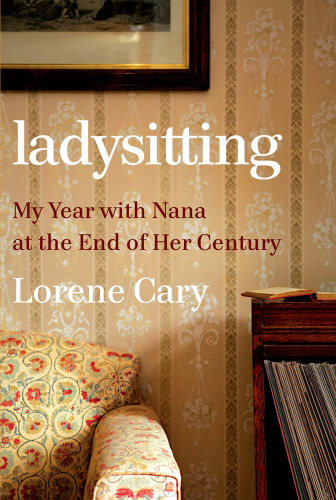
Ladysitting
My Year with Nana at the End of Her Century
کتاب های مرتبط
- اطلاعات
- نقد و بررسی
- دیدگاه کاربران
نقد و بررسی

February 15, 2019
A grandmother's death reveals complex emotions and a tangled family history.Growing up in Philadelphia, novelist Cary (Creative Writing/Univ. of Pennsylvania; If Sons, Then Heirs, 2011, etc.), founder of Art Sanctuary and SafeKidsStories.com, was doted upon by her wealthy, elegant grandmother, spending delightful weekends in her spacious New Jersey home. "Yes, yes, yes, I knew that I was being spoiled," the author admits. Only later did she discover that the woman who indulged her was more complicated and difficult than she had realized. In a candid, sensitive memoir, Cary chronicles her 100-year-old grandmother's last year, when she lived with the author and her family. It was a stressful period that tested Cary's patience and love and motivated her search for the "truth and lies, business and money, and communal and racial memory" that made up her grandmother's long life. Besides accompanying her grandmother to concerts and museums as a child, she also rode along "in Nana's latest late-model car" to collect rents from her tenants in Philadelphia, who lived in apartments "Nana would not have wanted to live in." When she asked about the disparity, Nana told her "this was business." Yet the hard-nosed rent collector (she once told a tenant who complained about mice to get a cat) also administered a scholarship fund for black students and set aside a storage room "to save people's furniture for them after evictions." Her treatment of family could be harsh, as well: She feuded with her son--Cary's father--reconciling only when she was near death; and she treated her husband with condescension. As her health worsened, she became combative. Although she had survived serious illnesses and a car crash, degenerative heart disease finally undermined her apparently indomitable life force. Cary recounts Nana's increasing weakness as well as the enraged demands--for particular foods and constant attention--that generated Cary's own debilitating physical responses. She recounts, as well, her negotiations with nurses, kind hospice workers, and Medicare's frustrating bureaucracy, experiences familiar to many caregivers.Thoughtful reflections on pain, love, and family.
COPYRIGHT(2019) Kirkus Reviews, ALL RIGHTS RESERVED.

April 15, 2019
When novelist Cary's daughters were in middle school and college, she made the selfless decision to take in her nearly 100-year-old grandmother, Nana, a spitfire dancing the line between standard and hospice care. Cary's husband, a pastor, welcomed his elderly relative with support and love, involving her in the community of his church, even when she rarely left the upstairs of the rectory. Between stories of her grandmother's antics (bedpans, bee stings, breakfasts in bed, a parade of incompetent nurses), Cary shares her larger family history, placing the aging woman in her house in the context of her matriarchy and descendants. Cary is candid about the stress of how long her grandmother held on. At times, Cary wondered if keeping Nana in the house was actually introducing her daughters to death in the healthful way that she originally intended. Interestingly, Cary previously wrote this story as a one-act opera and discusses in this book how that practice helped her heal. With admiration, triumph, and love, Cary captures the universal experience of close family loss.(Reprinted with permission of Booklist, copyright 2019, American Library Association.)

























دیدگاه کاربران